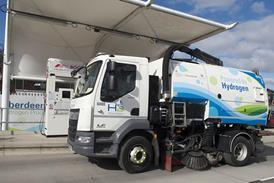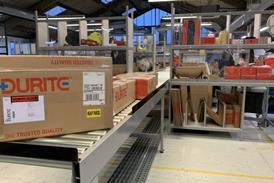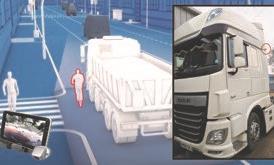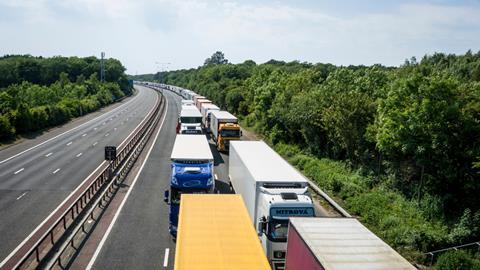Leaders of the County Council, Medway Council, and the District and Borough Councils of Kent have called on the new government to reduce the risk of disruption across Kent and Medway when Entry Exit System (EES) checks are introduced by the EU later this year.
Following a meeting in Dover yesterday (24 July), a letter has been sent to Yvette Cooper MP, secretary of state for the home department, and transport secretary Louise Haigh MP, urging the government to take urgent action to avoid disruption at the border between the UK and France, which it said threatens to seriously impact international trade and people travelling through Kent.
The letter warned that if Kent becomes gridlocked, supply chains will be fundamentally impacted, and therefore the implementation of EES checks is not just a Kent problem – but a national problem.
The letter added that council leaders are continuing to press for urgent action, given that these checks threaten to result in extremely serious delays for international trade and those travelling through Kent, and will have a knock-on effect on local communities, residents, businesses, tourism, and the delivery of vital public sector services along the route to Dover.
They urged the government to urgently work with the EU to find a technological solution to enable the Port of Dover to process passengers through the port, along with facilitating new sites outside of the port where these checks can be carried out.
Responding, Nichola Mallon, head of trade and devolved policy at Logistics UK, said: “The logistics sector is in wholehearted agreement with the sentiment expressed in the letter from Kent council leaders.
“A quarter of all food imported into the UK from the EU passes through the Port of Dover and Eurotunnel, and while the short delay recently announced by the European Commission is welcomed, it doesn’t give enough time to address all the industry’s key concerns.
“The government must now do all it can to secure a further extension and a phased approach to the planned implementation of EES this autumn – ideally, logistics businesses need an app or web-based system to be developed and tested that would enable biometric scanning to take place away from the border to reduce congestion and delay. It is vital that a workable solution for the UK’s borders with the EU is found to protect the nation’s supply chain, both in Kent and nationwide.
“In the meantime, government must urgently share its data analysis and scenario modelling with key strategic partners to enable them to coordinate their planning and response efforts and ensure they are sufficiently resourced to respond as needed.”









![Mercedes-Benz_eActros_600_(1)[1]](jpg/17820_mercedesbenz_eactros_600_11_978080.jpg)




![GB S&S[80377]](png/19393_gbss80377_245688.png)

